Don’t use television as a writing source.
I should end there with that one true sentence and be done with this blog post, but then again, I probably need to defend it with some examples.
Let’s start with dialogue.
“Marcus, you cover me from over there,” the long-haired man said, fingering his rifle. “Don’t let anyone get behind me.”
“Right, Bill,” Marcus said, rubbing the scar over his right eye. “I’ll be behind that empy barrel that won’t stop a bullet, but it’ll look good on the screen if they ever make a movie about us.”
“Marcus!”
“What!”
“My name’s not Bill, and remember, Marcus, when you shoot, stand up in the open and hold the trigger down until a thousand rounds are fired. Then run to that rock, jump into a forward roll and come up firing again as if you’ve reloaded, but you won’t, because you have a magic machine gun.”
“Bill, you know you’re my best friend.”
“Then why can’t you remember my name, Marcus. It’s about that woman, isn’t it? That Harry girl.”
“She wasn’t that hairy, maybe a little on her knuckles, but she gave me a case of the screaming memies every time she was around.”
“She gave me a case of something else, Marcus, but that’s a discussion for another day. Marcus.”
“What?”
“Start shooting now!!!!”
Well, you get the picture. I don’t know how many wall-banger books I’ve started that are filled with dialogue like this. (A wall-banger is a novel that’s so bad you throw it against the wall). Lordy, I’ve read enough of them, or tried to.
In fact, it was a wall-banger forty years ago that made me sure I could write novels. I distinctly remember closing it after five pages and saying to myself, I can write better than that.
The dialogue above could have come from a screenplay. Movies use names all the time to help viewers understand who’s talking and to identify a character,
(although I wish they’d done that in Blackhawk Down, because all those kids look the same in uniform),
but that’s not necessary in novels. We don’t say a person’s name in every sentence. Instead, identify the speaker with mannerisms or actions.
I can get bogged down here with names and dialogue for an hour, but let’s move on to other ways television and the movies can get a writer into trouble, like…
…cars don’t always flip over in automobile accidents. We all know it sometimes happens, but for cryin’ out loud, give us a reason and not just that it ran into a knife lying in the road and blew out a tire and rolled onto its side, but thinking about cutlery…
…the most dangerous knife in the kitchen isn’t that big chef’s knife half-naked women grab when they’re scared. It looks good on screen I guess, but don’t use this in your action scene. How about a nice boning knife, long and sharp and your character can use it when a bad guy comes running into the kitchen shooting a hundred times but…
…the aforementioned guns really don’t fire forever. A six shooter only shoots…six times. Be sure you know how many rounds a semi-automatic magazine will hold. They vary. Know your weapons if you’re going to write about them. No one can intentionally shoot a gun out of someone’s hand, and shooting a bad guy in the leg is iffy at best. If you’re unfamiliar with firearms, reach out to an expert, especially if someone shoots a car or something filled with gas and creates explosions…
…and those aren’t always big balls of yellow, red, and orange flame. What you see on the screen is usually a controlled propane explosion. Again, do a little research to find out what real detonations look and sound like, instead of a slow-motion ball of fire, and while we’re talking about fire…
…torches don’t burn for hours.
Let’s pause for reflection. I learned this when I was a kid. My grandparents lived in the country, so we were always building fires (and that’s how I learned spirits of camphor is an excellent remedy for burns). Us kids grew up watching movies with people carrying torches into gold-filled caves or to burn castles and such (by the way, those people were geniuses at whipping up a batch of torches on the fly), so one evening when I was around twelve, my cousin and I decided to make some of our own.
We built a fire in the pasture a good distance from the house and barn and stuck some old ax handles into the coals. They soon burned cheerfully and when it came time to run off into the darkness and chase boogers with a cheerful flame, I pulled mine out. Instead of the steady blaze I’d seen on TV, it went out.
I blew on it and flames flickered alive. Aha!
If blowing on the smoking end will produce flame, then I can run and get the same result. Maybe walking brisky along with a crowd intent on burning a monster is the idea.
My Old Man recalled watching from the porch as Cousin and I ran, trotted, and walked with brisk determination through the pasture, holding the “torches” high in the air. He said it looked like fireflies that went out as soon as we stopped.
And darkness closed in.
Hollywood torches burn forever. Real ones might burn for a few seconds if they’re made properly. If you’re gonna have torches in your scene, give us a quick sentence or two about how your characters made them.
Let’s see. Oh, victim aren’t thrown across a room when shot with a 9mm or even a .45…
…and getting shot in the shoulder isn’t like a mosquito bite that heals the next day and speaking of shooting…
…you can’t shoot the lock on a door with the abovementioned pistols and have it swing open. Your character will likely wound themselves or just shoot holes in wood and that can be loud and…
…speaking of loud, silencers don’t work on revolvers and they don’t make the report as silent like the desert at night where…
…the old west isn’t all deserts and Monument Valley.
There.
It’s all right to use movies and television to spark an idea or two. That’s called working, and when the Bride comes into the living room to find me stretched back in the recliner, I’m getting ideas for later.
I think I’ll go do that right now. Or I might read. That’s working, too, and I can be inspired by books…good ones, that is.


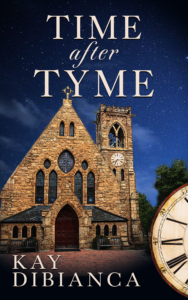

 If I may riff off
If I may riff off 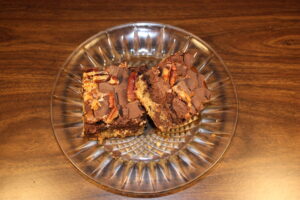
 Writer friends are the absolute best. They lend advice, encourage when things seem bleak, and help celebrate successes.
Writer friends are the absolute best. They lend advice, encourage when things seem bleak, and help celebrate successes. 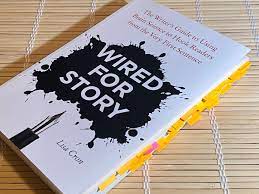 What would you say if I told you that what the brain craves, hunts for, and responds to in every story it hears has nothing to do with what most writers are taught to strive for? What’s more, that it’s the same thing whether you’re writing literary fiction or a down and dirty thriller?
What would you say if I told you that what the brain craves, hunts for, and responds to in every story it hears has nothing to do with what most writers are taught to strive for? What’s more, that it’s the same thing whether you’re writing literary fiction or a down and dirty thriller?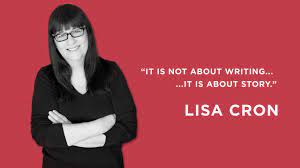 Lisa Cron is an instructor at the UCLA Extension Writers’ Program. She has worked in publishing at W. W. Norton, as an agent at the Angela Rinaldi Agency, as a producer on shows for Showtime and Court TV, and as a story consultant for Warner Brothers and Village Roadshow. She lives in Santa Monica, California.
Lisa Cron is an instructor at the UCLA Extension Writers’ Program. She has worked in publishing at W. W. Norton, as an agent at the Angela Rinaldi Agency, as a producer on shows for Showtime and Court TV, and as a story consultant for Warner Brothers and Village Roadshow. She lives in Santa Monica, California.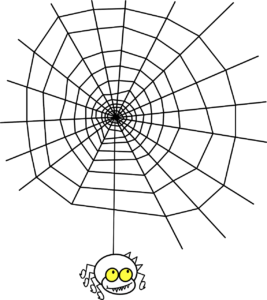 I usually spend a bit of the early morning outside. Mrs. B has created a lovely garden spot in our back yard. There’s a Celtic cross under an arched trellis, with creeping vines all over, and I’ll sip some coffee and have a little quiet time. Good for the brain and the soul.
I usually spend a bit of the early morning outside. Mrs. B has created a lovely garden spot in our back yard. There’s a Celtic cross under an arched trellis, with creeping vines all over, and I’ll sip some coffee and have a little quiet time. Good for the brain and the soul. Do you have a favorite writing conference? Please explain.
Do you have a favorite writing conference? Please explain.